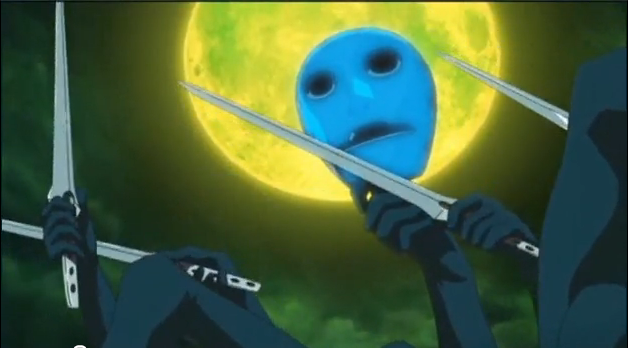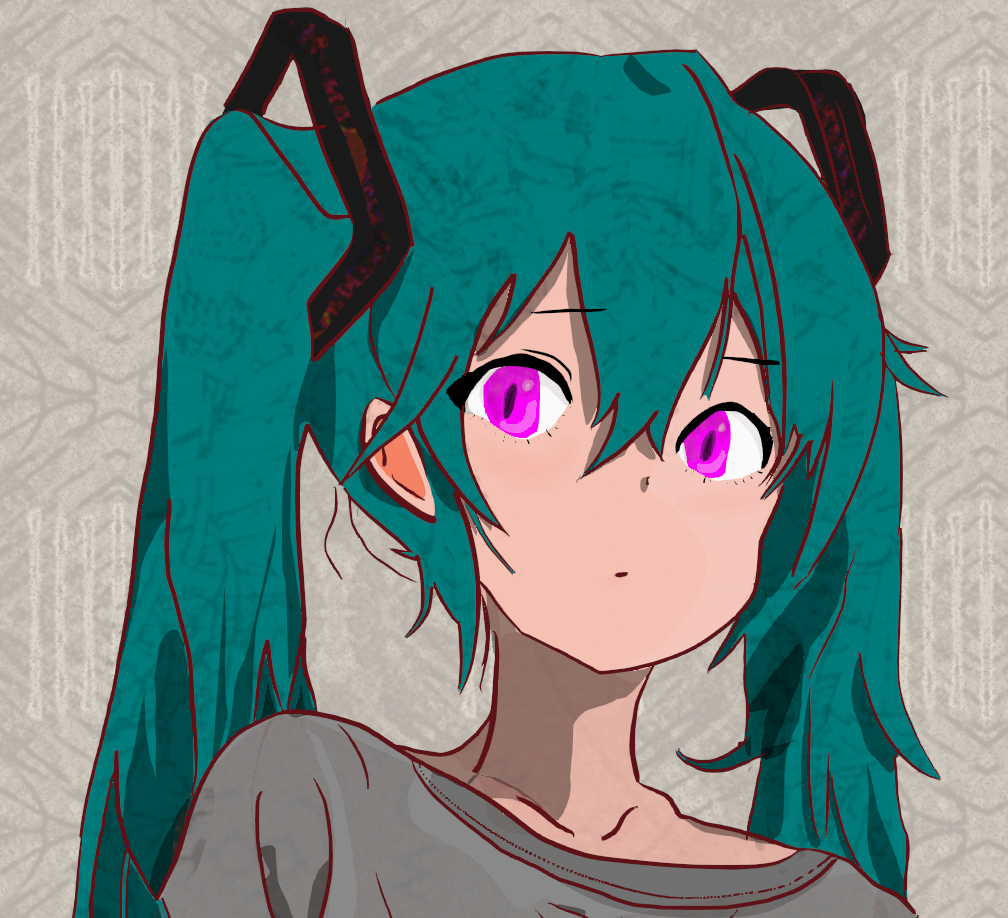- cross-posted to:
- literature
- cross-posted to:
- literature
The Will to Change: Men, Masculinity, and Love is a book by bell hooks about men, patriarchy, the relationship between them, and most importantly love. There is no need to pick up a copy, comrade Sen has already uploaded the entire audiobook onto Youtube. Content warnings are generously provided by Sen at the start of each chapter. This time we are doing chapters 2 & 3. Each chapter is only about 30 minutes long, so it's not a long commitment. Let me know if two chapters a week is too much or if I should change the format.
Discuss-
-What stood out to you about this chapter?
-Are there any ideas that bell hooks introduces in this chapter that you've never heard of or wish you had heard earlier in your life?
-Are there any stories in this chapter that resonate with you on a personal level?
You k ow which man had the will to change? Henry Kissinger. Changed from alive to dead. And if that's not personal growth in masculinity don't know what is.
Also I really enjoyed reading all of your posts in the last thread, everybody.
I consume audiobooks really fast, but I'm appreciating is her inclusion of queer men and their experience of patriarchy. I didn't expect something from this far back would offer so much prescient writing on experiences I've only begun to articulate as a queer man.
I started this book after seeing your previous thread and wanted to look into my own experience with masculinity. It's been nice to disentangle what I'm attracted to from what society has said I should want or expect. It's nice thinking about my own childhood and how my version of being a boy was valid.
I didn't expect something from this far back would offer so much prescient writing on experiences I've only begun to articulate as a queer man.
yeah the more I read the more I have been able to fully internalize the fact that the past was not a dumber less enlightened place really, nor are things as different as we like to think. Some things change for sure but the fundamentals are very similar and in almost every field I find that 30+ year old writing is on more or less the same level as modern scholarship, if not occasionally better
-What stood out to you about this chapter?
The acknowledgement (however depressing it may be) that there is an actual system in place to deny boys, men, guys, mascs, etc like 50% or more of potential social interactions. And that its so woven into our society that its just... normal. And that it comes from all quarters, teachers, parents, other family, neighbors, all the way down to peers.
Personal anecdote: I was in middle school and getting bullied at recess by like 3 boys. There wasn't anything physical, just verbal abuse that I can't remember the content of. The only part that I can remember... is when one of the bullies said something like "I bet you like to eat pussy!" I asked him why I would have a problem eating pussy and that's about when he realized his insult was kind of a fuck up. When the other boys realized their bullying accidentally accused me of being not only "straight" but having "gone farther" with a girl than any of them... like it was a bad thing... they just kinda lost interest and wandered off.
Its a weirdly interesting thing to remember and think about in this context. That these middle school kids, who were just caught up in a cycle of bullying to try to maintain their place in the hierarchy of kids on the playground (or just among the trio) were trying to make an insult about my sexuality and ... couldn't have been "manliness" but "boy-ness" seems awkward... but still had the residual "girls are icky" programming from elementary school days they walked into a moment of cognitive dissonance for everybody.
-What stood out to you about this chapter?
The reference to Harry Potter as a recent world phenomenon and how its a bit of wish fulfillment geared to boys and young men and how its language and solutions to problems demonstrate how limited stories are for boys/men. I mean... for me it was Ender's Game back in the 90's. That book hit me super hard, it was the first really long book I had ever read (and I was an avid reader from a very young age) and the first book that I read multiple times. And boy howdy is the world and story super fucked up... I keep hearing about the anime/manga Attack on Titan and its ending and I almost want to reread Ender's Game and then watch the series to see how much the main characters Ender/Eren are similar.
These chapters reminded me of Brian Quimby on Woodstock ‘99. How all the violence was a result of guys being asked about their feelings in the 90s and when they said “I’m angry” or “I’m horny” they just got told that they were wrong.
@Pluto@hexbear.net could we get this pinned? Also I consider this theory so @CARCOSA@hexbear.net once the Kissinger posting has died a bit please feature this.
I read this recently and it is tough man. It really feels tough to undo like 34 years of programmatic violence towards yourself and others.
-What stood out: Bell Hooks dunking on Harry Potter back in 2004, fuck yeah. The Patriarchy chapter didn't have any new information for me even when I first read it, but it does point out how afraid people are to use the word, especially men. You can lose a lot of status and become the object of ridicule for a lot of men just by adopting feminist speech and terminology.
-Ideas: I do wish I'd learned of how damaging social exclusion can be, how much I was harming myself by not expressing any of the emotions I was subtly informed I am not allowed to express. The notion of anger being the only acceptable outlet for all of the negative feelings boys have, just like anyone else.
What resonates: Feeling completely lost when it comes to my emotions was my normal for most of my life, up until a few years ago when I decided to really knuckle down and explore them and figure myself out. I'm a lot more stable now, and finding healthier ways to deal with my feelings. But the neglect I suffered at the hands of, well, every single adult in my life who was supposed to be responsible for my emotional wellbeing was pretty damaging. And the fact that it's pretty much normal for boys, though they find other ways to make connections with their peers, is pretty horrifying.
Some quotes that resonated from chapter 2:
- "in reality I was stronger and more violent than my brother, which we quickly learned was bad. He was a gentle, peaceful boy, which we learned was really bad"
- "his gentle quiet manner often led folks to ignore him, counting him among the weak and powerless"
- "psychological patriarchy is a dance of contempt, a perverse form of connection that replaces true intimacy with complex covert layers of dominance and submission, collusion and manipulation"
From chapter 3:
- "boys are free to be more emotional in early childhood because they have not yet learned to fear and despise expressing dependence"
- "either boys act out, or they implode. Very few boys are taught to express, with words, what they feel, when they feel it"
- "aggression (antisocial behaviour/isolation) was part of the ritual of separation, a means for the growing boy to assert his autonomy"
- "patriarchy both creates the rage in boys and then contains it for later use, making it a resource to exploit later when boys become men. As a national product, this rage can be garnered to further imperialism, hatred, and oppression of women and men globally. This rage is needed if boys are to become men willing to travel around the world to fight wars without ever demanding that other ways of solving conflict be found"
Some personal reflections:
I remember moments throughout my childhood where the most disturbing thing I could do in my dad's opinion was to be gentle. The story told in chapter 2, about not caring who wins or loses marbles touched on this experience exactly.
Another moment came from my mum and a family friend, insisting that I was about to become an isolated, angry teenager, before I'd actually exhibited any of that behaviour. Somehow showing me the path I should be on and preemptively shaming me for it.
Lots to think about from these chapters
I'm new to being gender fluid(with XX chromosomes), and maybe this book will help me move my masculinity in a more positive direction. I don't really understand what makes me identify as a man too, other than I just feel that I am.
So far, the author is mostly just discussing how boys and men are socialized. Starting out as children who get to have some agency in how they show their emotions and who they show them too ... and then having that stomped out by all facets of a patriarchal society until the child moves into boyhood and then manhood having learned that showing emotions other than lust and anger are unacceptable. Being allowed to talk and ask questions as a child but as a man a major method of communication becomes various forms of violence towards ... well everybody. And if you're a guy/masc and those options are too uncomfortable for you, there is always the fallback of just shutting down outward signs of emotion and communication with other people.
Shit. This must contribute to why the only comfortable way I've found to express my masculinity is mens' clothes. My masculine expression feels lacking, but I don't know what else to turn to. I don't care for voicework and I can't think of anything else.
My masculine expression feels lacking
That feeling, if I'm understanding bell hooks in this work, is a default position of man/masculinity in a bunch of western society. So... congratulations! You're successfully being masculine!

Hey, remember this reading group?
I got a little caught up with other stuff and am finally coming back to finish it.
Interesting stuff from Chapter 2:
-Both men and women uphold patriarchy, and men oppress women. The idea that women could also uphold patriarchy was so shocking to me when I first read this chapter that I was too scared to say it out of fear of being considered a reactionary, even though the evidence is all around us.
-bell, naming the system is important but the phrase "imperialist white supremacist capitalist patriarchy" does not exactly roll off the tongue. People are probably laughing at the clunkiness of the phrase.
Interesting stuff from Chapter 3:
-Boys often learn patriarchy from each other, and are forced into it by their peers. They also learn it through the Internet and media now. The word "Andrew Tate" passes through my head often during this chapter.
-"Boys either act out or implode." I feel this on a primal level. Earlier in my life my depression led me to either bring myself down or bring others down around me. It was either hate directed towards myself or towards others, and neither was good. Due to emotional maturity that comes with age, some therapy, a lot of thinking, medications, and a friend group here, that is much less the case now.
-bell hooks accurately describes the school shooter phenomenon before it became as common as it is today: "It shouldn't surprise us that boys are violent, that they are willing to kill. It should surprise us that the killing is not yet widespread." Well, now it is.
-anger hides fear and pain
-The alienation of boys directly leads to violence
-"There is no emotional outlet for the grief of the disappointed teenage boy." I remember hearing so clearly my first rejection from a girl in high school and just feeling the absolute worst. Being allowed to be sad about this, being allowed to not have to be the patriarchal figure I had heard so much about, would have helped so much. I was so upset not just with her reaction but with myself, for not fulfilling the patriarchal norm. I began to think that I was unworthy of love in general. I absorbed the worst of pop feminism of the 2010s and a bit of the pick-up artist crap of the era and determined that women felt uncomfortable around "beta" men like me and that I was a danger and thus shut myself off from dating for years.
-Andrew Tate and people like him are the absolute scum of the earth that emerge to "help" the alienated young men. These men take advantage of other men and use their anger to grift, hurting more men and women in the process. Pick-up artists hate women, that is true, but they also hate men. They peddle bullshit about "alpha" and "beta" men to alienated teens. Those teens then go and commit patriarchal violence. Andrew Tate belongs in a gulag, or better yet, in a grave.
-Now she's really pulling it together, showing how the alienation and brainwashing leads to men willing to die in war
"While feminism may ignore boys and young males, capitalist patriarchal men do not"
This is the biggest lesson we should learn from the 2010s. If you want to know why GamerGate and the ensuing anti-feminist reaction got so big, look no further than here. When the only exposure to feminism most men get is an exposure to pop feminism, the "male tears" mugs and "girlboss" grindsets that put men down merely for expressing themselves, is it any wonder why the right got so big? Much has been gained by the strong trans activism in recent years and the ability to call these so-called "feminists" what they are, which is TERFs.
Interestingly, right after I typed this comment, bell hooks immediately started shitting on the works of the infamous TERF author J. K. Rowling.
Yes but my life has Many Things happening in it right now so these chapters are staying up for a few more days.






